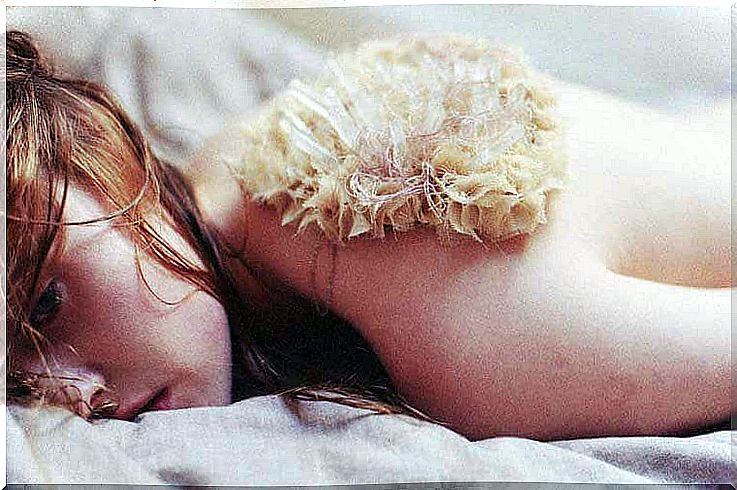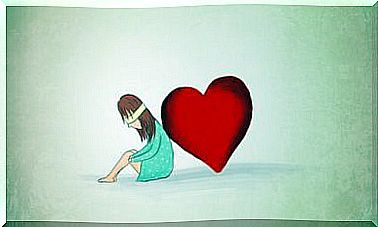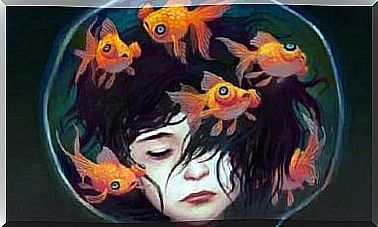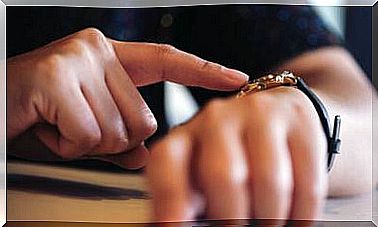What Are The Phases Of Grief In The Breakup Of A Couple?

When will I be okay? Why did I go from sadness to anger so fast? These are the most frequent questions that people who go through the phases of grief in the breakup of a couple ask themselves. The breakup of a couple and the grief that this entails are some of the most frequent reasons for consultation in the practice of psychology with adults.
After a couple breakup, people go through different phases that make up a mourning picture. In this article I will explain to you what are the phases of grief in the breakup of a couple and what characterizes each of them.
Phase 1: state of impact or shock
This is the beginning of grief, in this phase the person does not quite believe it, it is difficult for him to be aware of the loss and see the new situation. Emotionally, in the impact or shock phase, an absence of reaction is observed and the person acts as if nothing had happened and everything remained the same.
The denial phase is more marked in people who have been “left” and is less noticeable in those who “have left”. What happens is that, whoever has decided to break the relationship and put an end to it, has already gone through the phase of denial and shock. And therefore, whoever takes the step to break the relationship has already worked out the new situation and does not show denial.
Once the breakup is made aware and the person is able to visualize what is to come, the next phase arrives, that of denial of the loss.

Phase 2: denial of loss
Within the phases of grief in the breakup of a couple, denial is found. In it, the person is aware of what he has lost, but does not want to accept it. He refuses to accept that the relationship is over and fantasizes about coming back. A characteristic example of this phase is represented by the idea that the break may have been a mistake or an anger that has gotten out of hand.
The mind in the denial phase is focused on finding ways to solve the problems, and thus be able to resume the relationship. This phase has an adaptive function, which allows you to gain time to “digest” the loss, to continue to comply with the routine and obligations, and little by little to become aware of the changes that have already occurred and will occur.
Phase 3: deep sadness
In this phase, you begin to assume and live in your own skin what the break represents. The person begins to be aware of how life has changed and will continue to change. And all this, all those consequences of loss are what generate a deep sadness along with a negative vision of the world, the future and themselves.
Therefore, this phase is characterized by psychological functioning following Beck’s cognitive triad and hence the state of deep sadness and symptoms of depression. Sadness is a necessary emotion so that you can really bear the loss, and it will help you connect with what happened and begin little by little to overcome the grief.

Phase 4: guilt
Within the phases of grief in the breakup of a couple, the guilt phase is one of the most characteristic. That is, guilt does not emerge so markedly when we face another type of grief. However, in the breakup duel it is one of the most notorious and most difficult phases to overcome.
Guilt leads you to think about what you could have done or said in order not to have lost the relationship. Rumination and obsessive thinking aimed at seeking responsible for the breakup can become psychologically exhausting to the person and cause a great state of anxiety.
Taking 100% of the blame in a couple breakup is counterproductive and is, above all, very unfair. The couple is a team made up of two people and the responsibility for the break is always shared. Try to spread the guilt you feel, understand it as shared responsibility and direct your mind to the future.
Phase 5: rage
Once you stop feeling that everything was your fault and you can spread the responsibility for what happened, you will begin to feel anger. Within the phases of grief in the breakup of a couple, the anger phase is the most “beneficial” or “positive” because if something or someone causes us anger, we avoid it and seek to remove it from our lives. And this in a breakup… it’s great!
Why is anger the best thing that can happen to you in the grief due to a breakup? Because rage, well driven, is a very powerful engine. In the first place, it keeps you away from that person you have lost and this is essential for overcoming. Having contact with an ex during the phases of grief puts people in the phase of guilt or sadness and it is difficult for them to move forward.
In the future you can be friends, but not during the duel. Therefore, anger helps the person to stay well away from what is hurting him. Use your anger to improve on a personal level, to think more about yourself and take care of yourself. But… be careful! Don’t get stuck in this phase: if you do, the same rage that protected you will turn against you.

Phase 6: acceptance
If you have lived and used anger properly, you can now go through the acceptance phase. The emotions in this phase are not completely positive or rewarding, they are emotions that allow you to see what happened as an experience in the history of your life, with its pluses and minuses.
People in the acceptance phase begin to come to terms with what happened, to think of themselves, and to direct their mind to the future and not to the past or loss. Acceptance is the definitive way to overcome the rupture and helps us to think about building a future for and by ourselves.
Finally, it is important to bear in mind that the phases of the duel in the breakup of a couple are not linear or correlative, something that is especially noticeable at the beginning of the duel. That is, the more recent the loss, the more changeable the phases of the grief. You can go from phase 1 to 3, and then to 2 and then to 4. As you work the loss and experience the duel, you will see that the recoil becomes weirder and you advance more frequently: you no longer feel so insecure and you start looking to the future with different eyes.
Final thoughts
Having seen the phases of the duel in the couple breakup, I would like to end the article by mentioning the results of the research carried out by García and Ilabaca (2013) in which the best strategies to overcome a breakup are shown.
According to the results of this research, avoidance would be an appropriate strategy when the possibility of resolving any conflict between those affected or the possibility of reconciliation is nil. The authors point out that “avoidance would favor cognitively reprocessing the situation of breakdown, helping to resolve the grieving process and subsequently continue living with greater feelings of well-being (García and Ilabaca, 2013)” .
On the other hand, they point out that the search for social support is also one of the most used strategies since it brings us comfort and psychological well-being. Despite the fact that the breakdown of a love relationship can lead to an important emotional earthquake, we must not forget that with patience, with work, with psychological help, if necessary, and the support of our environment, we can have a day to day life again. happy and complete.









